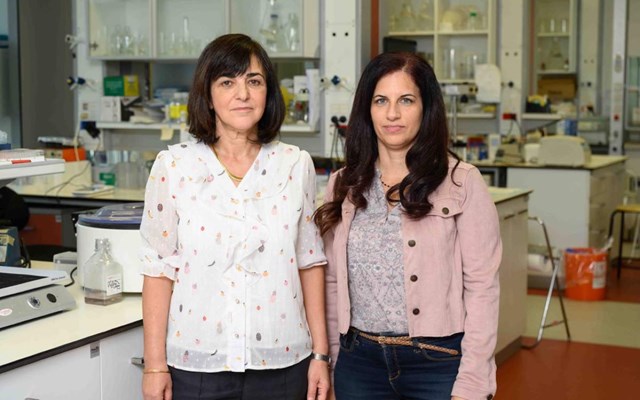
Prof. Rivka Dikstein and her team have developed a treatment that has been proven to slow or even reverse the effects of Huntington’s disease, an incurable neurodegenerative disorder. To eliminate the need for risky and painful surgery, the researchers sought to establish whether their treatment would be effective if given as a pill or subcutaneous injection.
People with Huntington’s usually have one working copy of the huntingtin gene and one defective copy, which leads to the creation of defective proteins that stick together, forming a toxic residue in the brain. The accumulation of toxins leads to symptoms like slight involuntary movements, general clumsiness, and increased anxiety. The disease eventually results in death.
The human brain is a well-guarded control center, surrounded by a densely packed cellular barrier that prevents most substances from getting in or out. This fortified architecture protects the brain, but it can also stop it from getting the help it needs, such as in the case of most neurodegenerative diseases. A possible ray of hope for Huntington’s patients was discovered in 2019 by Dr. Anat Bahat, a researcher in Prof. Dikstein’s lab in the Biomolecular Sciences Department.
For years, the lab has been conducting basic research into a large regulatory protein (Spt5) that helps in the production of messenger RNA molecules – especially important in the production of proteins involved with inflammation. Dr. Bahat and her colleagues found that several small molecules can inhibit certain functions of Spt5 without causing significant damage to the protein’s other functions. For this test, the researchers then found three small molecules that specifically inhibited the expression of mutant huntingtin without harming the expression of normal huntingtin and other proteins linked to inflammation.
Building on Dr. Bahat’s discovery, the team developed a treatment that they tested in cell cultures from human patients with varying degrees of genetic defect. In every case, a significant drop in the amount of the mutant protein was identified. The evidence shows that the new molecules can do their job with great precision, reducing the expression of the mutant copy of the gene and increasing the proportion of the relevant healthy proteins in the damaged area of the brain.
Dr. Bahat explains this is like “turning back the hands of time” to alleviate some of the brain damage caused by Huntington’s. “In behavior studies, we observed reduced levels of anxiety and improved balance and coordination,” she said.
Prof. Dikstein and her team have been thrilled to share these results that could give hope to Huntington’s patients and their families. “While other experimental treatments require repeated brain or spinal surgery, these molecules, delivered orally or by means of an injection, could pave the way for an effective and safe treatment of Huntington’s disease.”
She added that this understanding could also lay the foundation for new treatments for a variety of other diseases.
